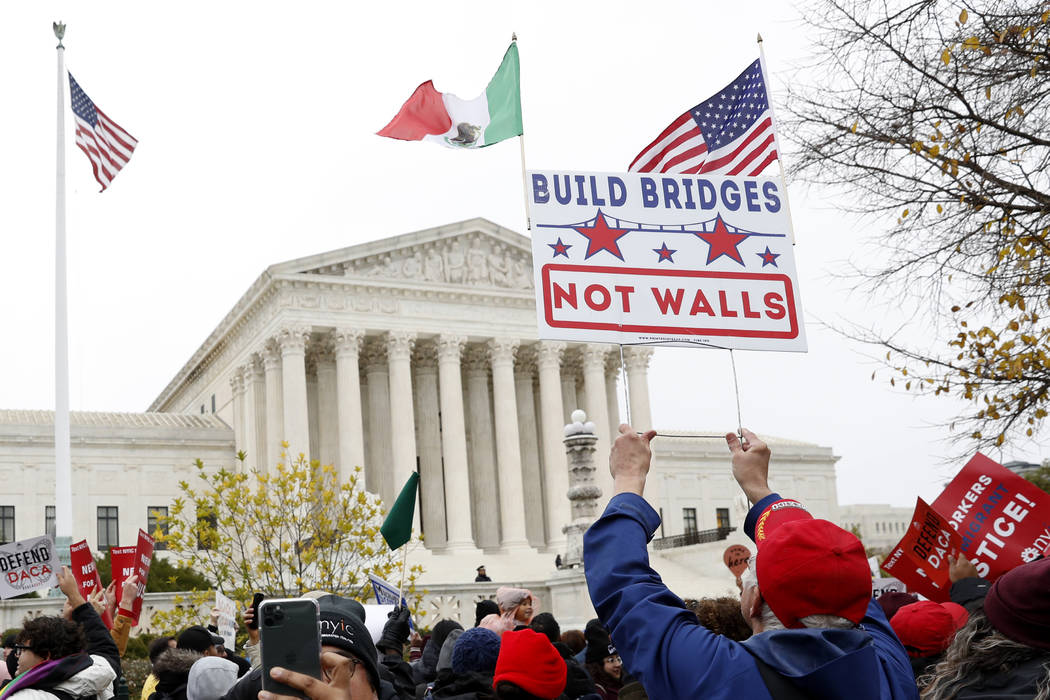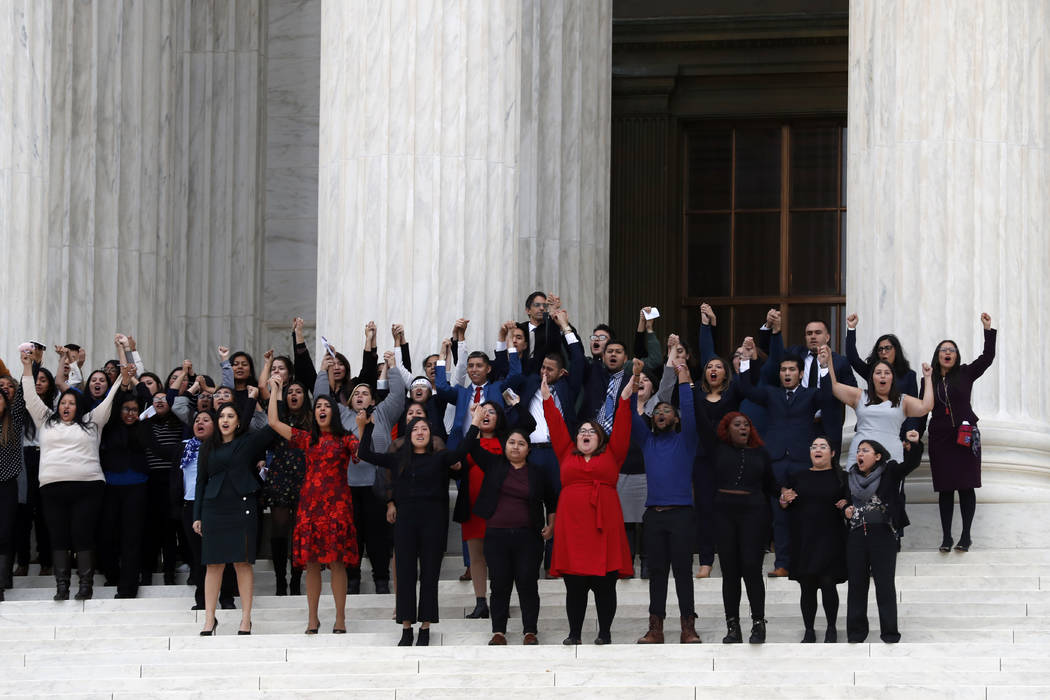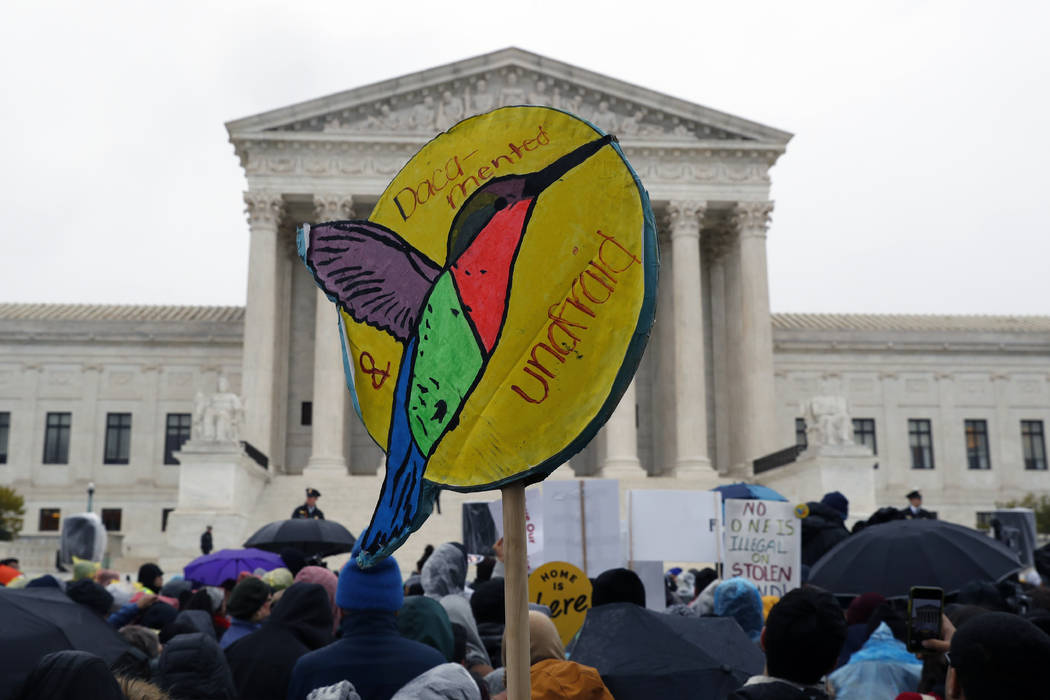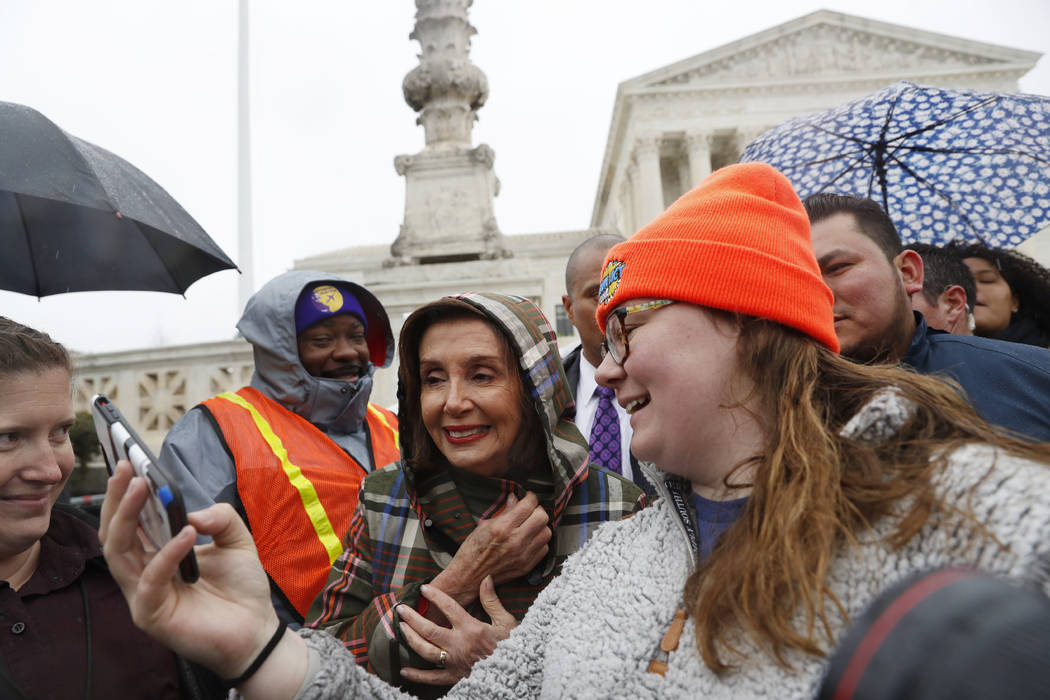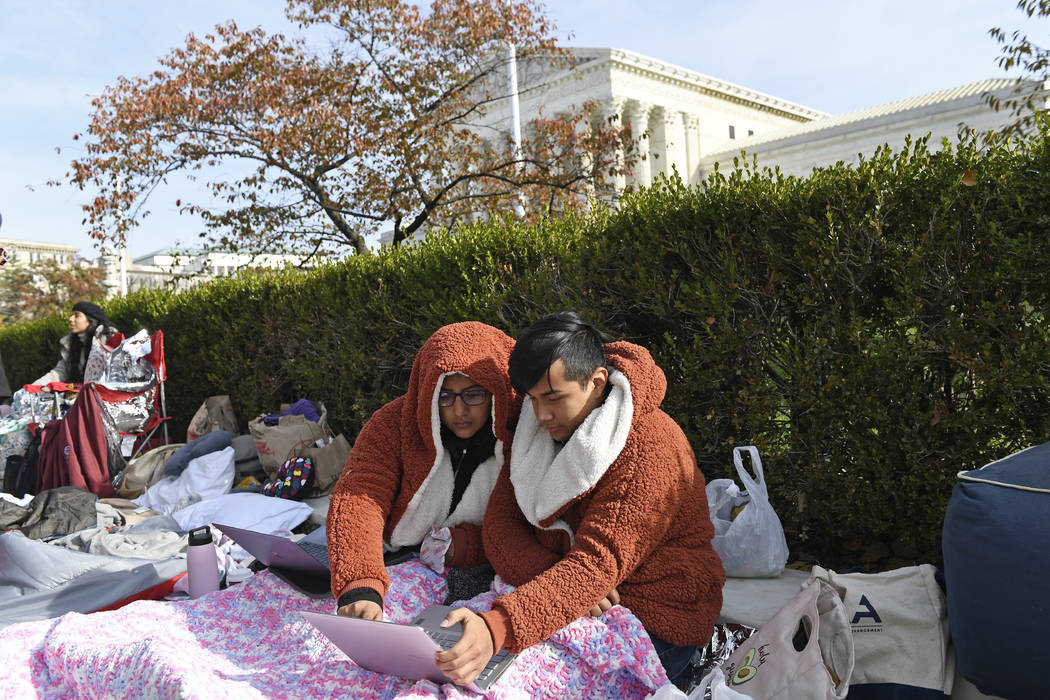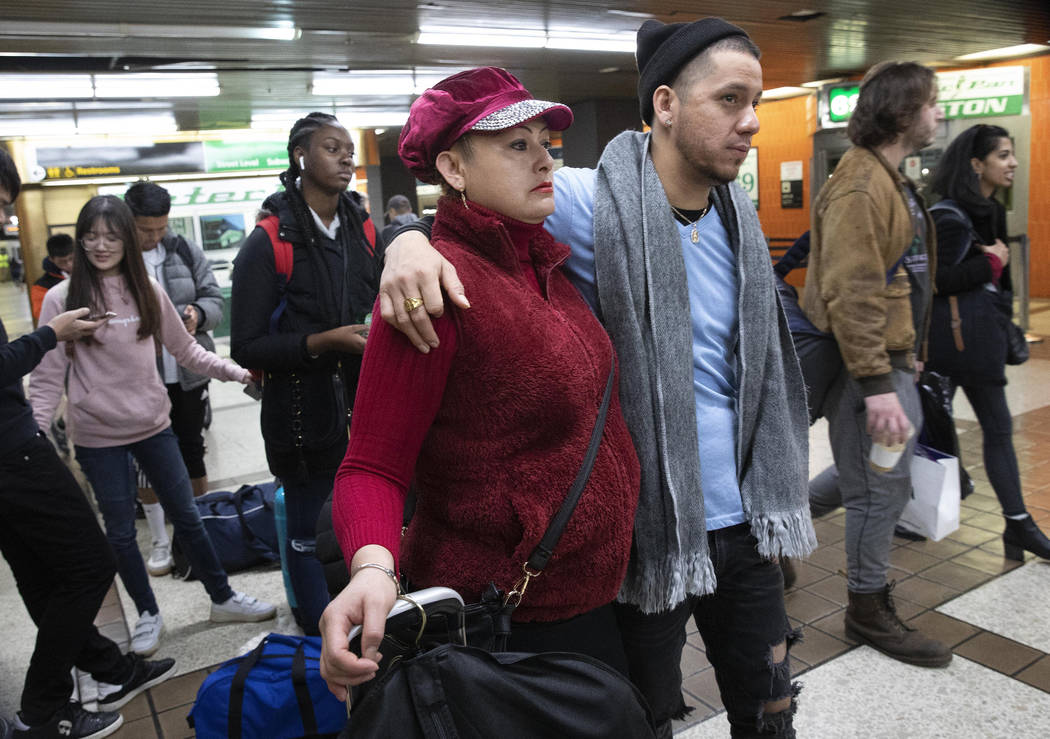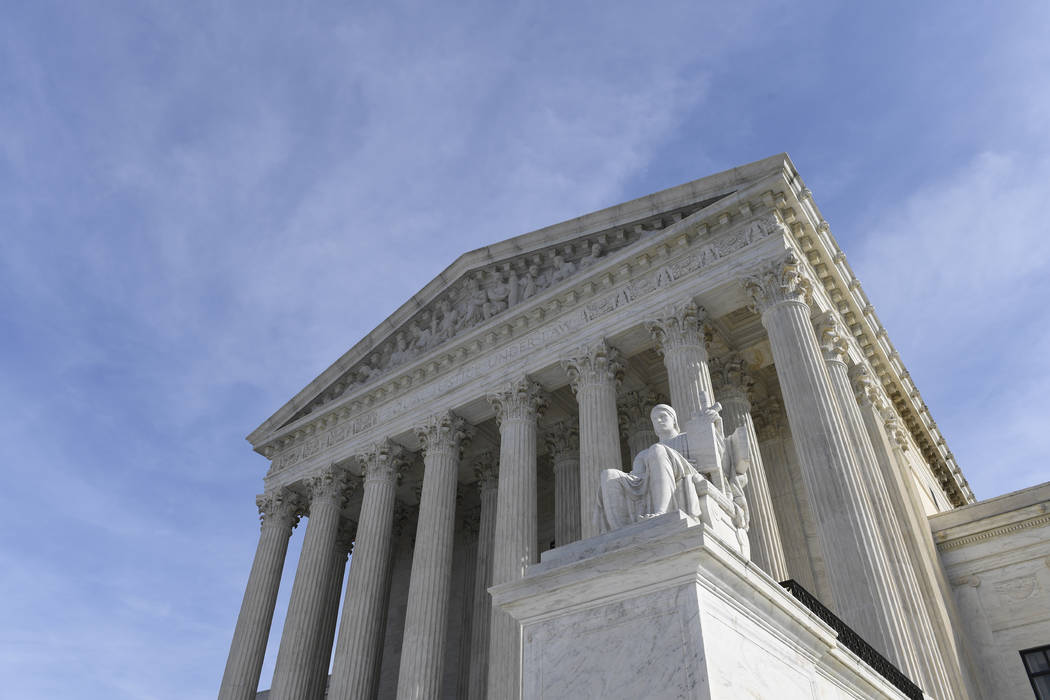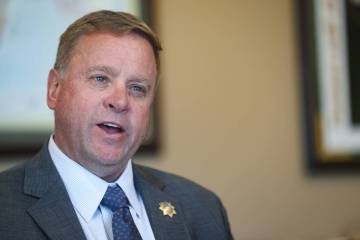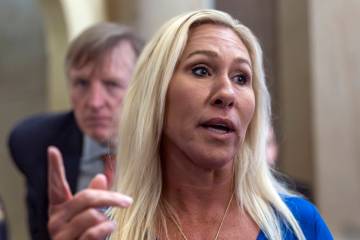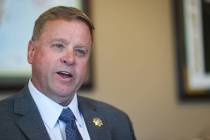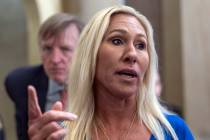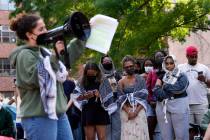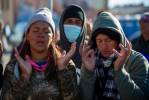‘Dreamers’ get their day in court
WASHINGTON — The U.S. Supreme Court heard oral arguments Tuesday in a case expected to determine whether nearly 700,000 undocumented immigrants – 13,000 from Nevada – can stay and work in the United States under a program begun by former President Barack Obama.
The Deferred Action for Childhood Arrivals program, known as “DACA,” allows qualified “Dreamers” — the children of undocumented immigrants brought into the United States as minors — to apply for temporary protected status to live and work in the United States.
After Congress failed to pass a comprehensive immigration reform bill, the Obama administration in August 2012 approved the DACA program. Obama had earlier said he was not a king, and lacked the authority to ignore existing immigration laws passed by Congress.
As a 2016 Republican candidate for president, Donald Trump was highly critical of DACA. He promised that, if elected, he would “immediately” terminate the program because, in his view, it was illegal and unconstitutional.
But as president, Trump hesitated and expressed reservations about “punishing children, most of whom are now adults, for the actions of their parents.” He went so far as to urge Congress to pass a DACA measure – even though he knew any compromise reform would not go over well with his die-hard base.
But then in September 2017, ahead of a threatened lawsuit against DACA, then-Attorney General Jeff Sessions announced that Trump would “wind down the program.”
Long legal fight
In the two-plus years that followed, the University of California and entities in New York and the District of Columbia challenged the Trump decision. Lower courts kept DACA in place, as the U.S. Supreme Court agreed to roll three challenges together into one case, captioned: Department of Homeland Security v. Regents of the University of California.
Opposing Trump is a coalition of Dreamers, Democrats, civil rights activists and big business interests that charge Trump’s decision to end DACA violated the Administrative Procedure Act.
Former Solicitor General Ted Olson — who successfully represented President George W. Bush during the 2000 Florida recount and challenged Proposition 8, California’s 2008 voter-approved initiative banning gay marriage — argued in favor of DACA on Tuesday.
Current Solicitor General Noel J. Francisco defended the administration’s position. The one-hour of legal questions and answers eschewed the personal arguments common in the DACA debate and focused on procedural issues.
At one point, Justice Brett Kavanaugh, the newest justice on the court, asked Olson, “Do you agree that the executive has the legal authority to rescind DACA?”
Olson answered, “Yes.”
Sen. Lindsey Graham, R-S.C., a long-term advocate for a big immigration bill, tweeted, “I find it hard to believe the Supreme Court would deny President Trump the ability to cancel an Obama-era Executive Order on immigration. The way to solve the DACA issue has ALWAYS been through legislation, not an Executive Order.”
But DACA supporters claimed the moral high ground. DACA beneficiaries told their stories, and ended with the statement, “My home is…”
“Here,” fellow activists gathered around them finished the sentence.
Keeping a promise to Dreamers
“DACA recipients are Americans in every sense but their citizenship status and deserve to live their lives without the constant threat of deportation,” Rep. Steven Horsford, D-Nev., said in a statement. “We must keep our promise to Dreamers. Denying their legal rights or rescinding the promise made to them seven years ago at the outset of the DACA program would be immoral and wrong.”
Sen. Jacky Rosen, D-Nev., agreed: “When the Trump administration rescinded DACA, it forced hundreds of thousands of Dreamers to live in perpetual fear in the only country they’ve ever known as home,” she said in a statement. “Whatever the outcome from today’s oral arguments, we must continue fighting tirelessly to protect the many thousands of Dreamers who call Nevada home. They represent some of our nation’s brightest, and I will continue to stand with them by supporting ongoing efforts in Congress to reach an immediate and permanent bipartisan solution to protect our Dreamers.”
Meanwhile, in Las Vegas, the UNLV UndocuNetwork, an organization for undocumented students and staff, held a small gathering in support of DACA on campus.
Student Mariana Resendiz said that even with DACA protections, she struggled to find financial aid or scholarships. Resendiz said UndocuNetwork is now able to offer resources like scholarships for all undocumented students, but that the students who could benefit from this help are threatened by the looming Supreme Court decision.
“Until then, we’re left in limbo,” Resendiz said.
Michael Kagan, director of the Immigration Clinic at the UNLV School of Law, said it’s essential for DACA recipients to apply for renewal, despite the uncertainty of the Supreme Court case.
Kagan said that the number of visits to the clinic has been steady since 2017, but that there have been other signs that immigrants are bracing for a future without DACA, like making preparations for self-employment.
“I hope that eventually we can give people some sense of permanency,” Kagan said.
‘Far from angels’
Senate Minority Leader Chuck Schumer berated Trump for “his relentless scapegoating of immigrants.”
In the morning, Trump chimed in on Twitter, “Many of the people in DACA, no longer very young, are far from “angels.” Some are very tough, hardened criminals. President Obama said he had no legal right to sign order, but would anyway. If Supreme Court remedies with overturn, a deal will be made with Dems for them to stay!”
Undocumented immigrants who have committed a felony, significant misdemeanor or three or more other misdemeanor offenses are not eligible for DACA. And Trump has talked about being close to a DACA deal before, without results.
The court’s ruling is expected in June, during the heat of the 2020 presidential race.
Contact Debra J. Saunders at dsaunders@reviewjournal.com or 202-662-7391. Follow @DebraJSaunders on Twitter. Review-Journal reporter Aleksandra Appleton contributed to this story.



